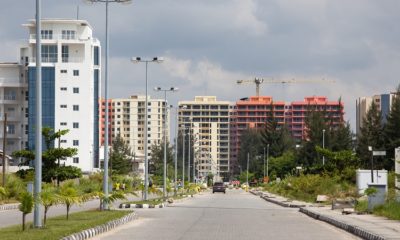The Federal Government has explained that it expended the sum of N612.56bn gotten through Sovereign Sukuk between 2017 and 2021 on construction and rehabilitation of 77 road projects and 23 bridges.
The Minister of Finance, Budget and National Planning, Dr Zainab Ahmed, made this known at the symbolic cheque presentation ceremony of the 2022 Sovereign Sukuk Issue proceeds of N130bn to the Ministry of Works and Housing and the Federal Capital Territory Administration.
While 71 road projects and four bridges were under the purview of the Ministry of Works and Housing, Ahmed said that six road projects and 19 bridges were handled by the FCTA.
She further explained that the administration of President Muhammadu Buhari had raised the sum of N612.557bn through sovereign sukuk between 2017 and 2021 for the purpose of construction and rehabilitation of key economic road projects in the six geo-political zones and the Federal Capital Territory.
The minister noted that the money was duly expended on the projects as earlier planned, adding that the amount has been used to construct and rehabilitate sections of 71 road projects covering 2,808.06 kilometers and four bridges by the FMWH and sections of six road projects covering 99 kilometers and 19 bridges by the FCTA.
According to her, from the N130bn raised from the sukuk issued in 2022, the Ministry of Works and Housing got N110bn while FCTA was given the sum of N20bn for road and bridge projects.
She said the FMWH and FCTA would be sharing the 2022 Sukuk Issue Proceeds of N130bn, adding that it was successfully issued by the Debt Management Office on behalf of the Federal Government of Nigeria on December 02, 2022.
Given further break-down of how the money was shared, Ahmed said Federal Ministry of Works and Housing got N110,000,000,000.00, while the Federal Capital Territory Administration took N20,000,000,000.00.
She further informed that the 2022 Sovereign Sukuk of N130bn would be released as part of the Capital Expenditure in the 2022 Appropriation Act, which has been shifted by the National Assembly till March 31, 2023.
As of November 2022, the finance minister noted that N1.88tn had been released as Capital Expenditure, representing about 40 per cent performance when compared to the total Capital Budget of N4.7tn.
However, Ahmed further explained that the capital expenditure performance, which she described as low, forced the minister to extend the fiscal period to implement the capital component of the 2022 Budget.
Also speaking at the forum, the Director-General, DMO, Patience Oniha, said that the Sukuk can be issued to fund any fixed asset in the country as designated by the finance minister, adding that the debt office started issuing the Sukuk in a challenging environment.
While noting that the issue process had become better over the years, Oniha said the office has been working transparently with the ministry of finance.
The Minister of Works and Housing, Babatunde Fashola, commended the sukuk bond initiative, describing it as a bailout instrument that has helped in fixing Nigerian roads in the country.
He noted that he inherited a sum of N18bn as total capital budget for roads in 2015 but the figure rose to about N266bn with the introduction of the Sukuk.
This interventions are coming even as Nigerians continue to lament poor conditions of roads across the country as number of road mishaps surge.


 Billionaire Watch3 weeks ago
Billionaire Watch3 weeks ago
 Startups4 weeks ago
Startups4 weeks ago
 News4 weeks ago
News4 weeks ago
 News4 weeks ago
News4 weeks ago
 Bitcoin4 weeks ago
Bitcoin4 weeks ago
 Naira4 weeks ago
Naira4 weeks ago
 Forex3 weeks ago
Forex3 weeks ago
 Treasury Bills4 weeks ago
Treasury Bills4 weeks ago






















